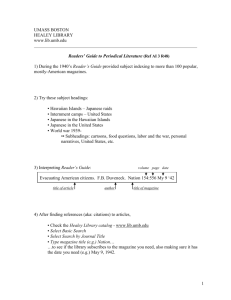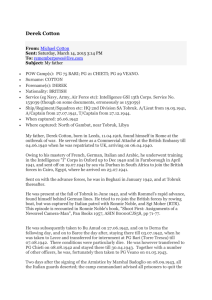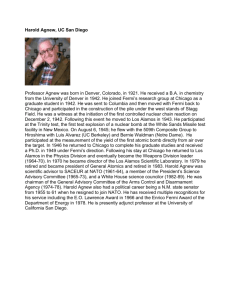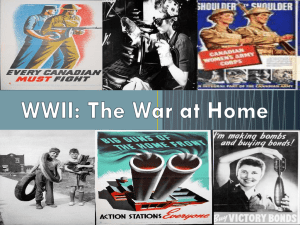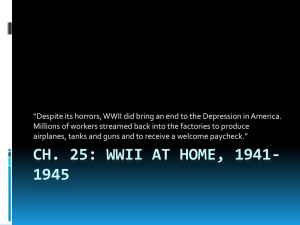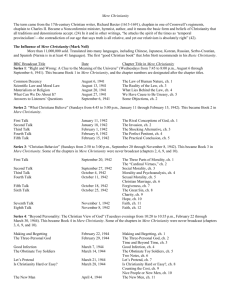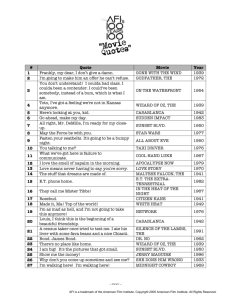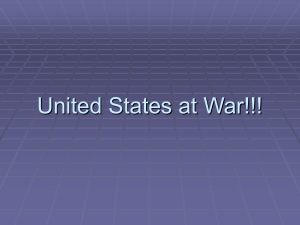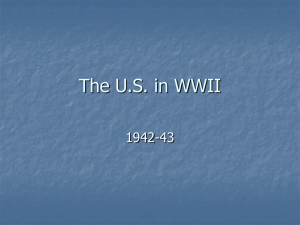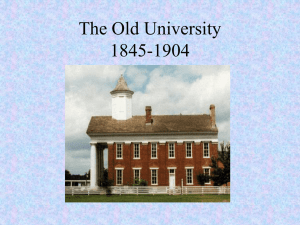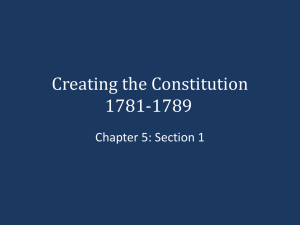AP 51 WWII DBQ
advertisement
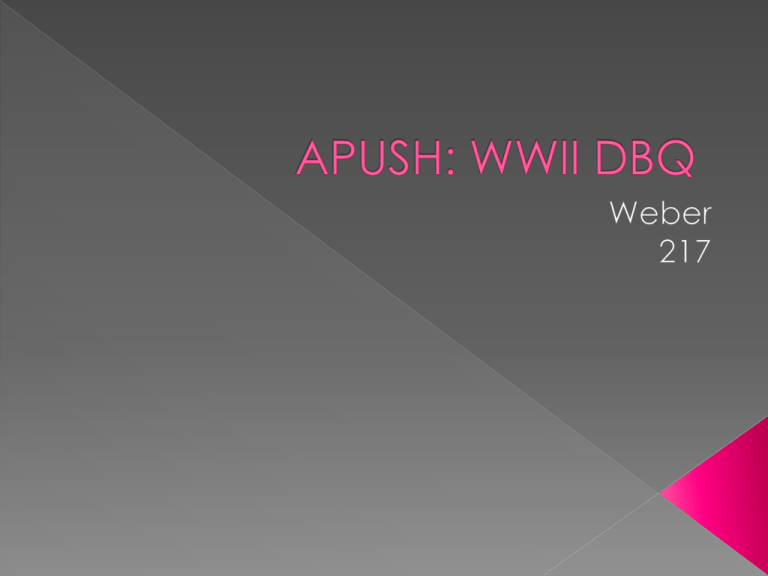
What are civil liberties? How did the war affect the U.S. government’s position in protecting civil liberties? civil liberty –noun. Usually, civil liberties. 1. the freedom of a citizen to exercise customary rights, as of speech or assembly, without unwarranted or arbitrary interference by the government. 2. such a right as guaranteed by the laws of a country, as in the U.S. by the Bill of Rights. Activator, agenda, and objective (10 minutes) Uneven impacts of war: African Americans (15 minutes) WWII DBQ (45 minutes) DBQ rubric grading (15 minutes) Legacy of WWII (time permitting) Exit ticket and homework (5 minutes) Different groups experienced the war differently: Women – Increased role in industry; dichotomy between Rosie the Riveter and Betty Grable (challenging and reinforcing gender stereotypes). Latinos – Zoot Suit Riots; Bracero Program. Japanese Americans – Internment African Americans – Segregated units; increased political demands. Struggled against Jim Crow laws in the South and discrimination in the North. With Lend-Lease program in 1941 industries needed labor yet 1 in every 5 African Americans were unemployed. Some progress: opened defense plants to everyone regardless of “race, creed, color, or national origin.” First Black man to enlist in the Marines. Strictly segregated units in the army prevented white and black soldiers from fighting together. Tuskegee Airmen 154th Regiment “ ‘You know we don’t “It is a mockery of serve coloreds here,’ the wartime goals to fight man repeated… we overseas against fascism ignored him, and just only to come back to stood there inside the the same kind of door, staring at what we discrimination and had come to see – the racism here in this German prisoners of war country.” who were having lunch at › Alexander J. Allen, 1942. the counter… This was really happening. It was no jive talk. The people of Salina would serve these enemy soldiers and turn away black American GIs.” › Lloyd Brown, 1943 Double V Campaign: victory over the Axis and victory over racism and discrimination in the U.S. Congress for Racial Equality (CORE) founded in Chicago, 1942. Organized restaurant sit-ins and other nonviolent protests. “If Negro men can carry guns for Uncle Sam surely they can drive milk wagons for Bowman Dairy.” › Protest sign help outside a Chicago milk company, 1941. Double V Campaign: victory over the Axis and victory over racism and discrimination in the U.S. Congress for Racial Equality (CORE) founded in Chicago, 1942. Organized restaurant sit-ins and other nonviolent protests. “If Negro men can carry guns for Uncle Sam surely they can drive milk wagons for Bowman Dairy.” › Protest sign help outside a Chicago milk company, 1941. How did the Second World War and the bombing of Pearl Harbor change the U.S. Federal government’s position in protecting Civil Liberties? In your answer be sure to address the political, social, and economic factors leading to the change in policy. A: Atlantic Charter (1941) B: Eleanor Roosevelt’s Speech to Chicago Civil Liberties Committee (1940) C: Office of War Information poster (1942) D: U.S. Army Guidelines (1942) E: Map of U.S. Internment Camps (1942) F: Supreme Court Case (1943) G: Newspaper Carton (1942) H: FDR Radio Address (1942) I: Supreme Court Case (1946) J: “Trouble in Philadelphia” (1946). You have 45 minutes to write. Remember: you must include a WHOLE LOT of outside information, so write an essay that uses the documents to support it. Begin reading ch. 23 on the Cold War for tomorrow and Tuesday.

